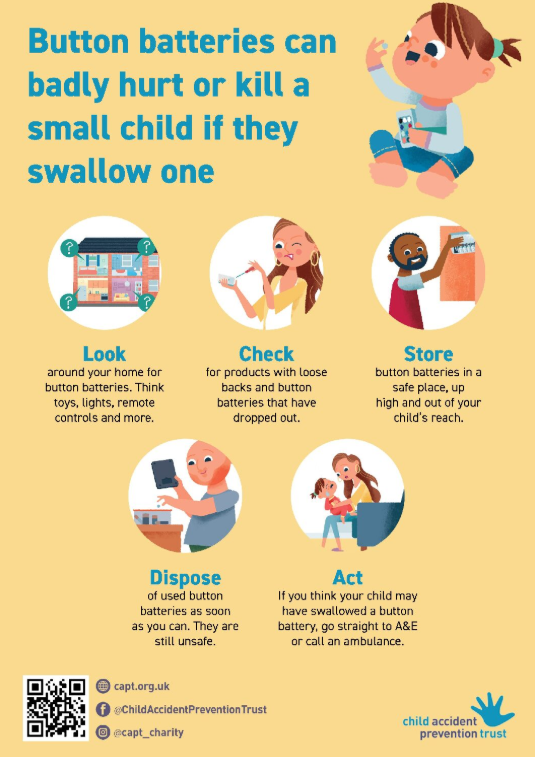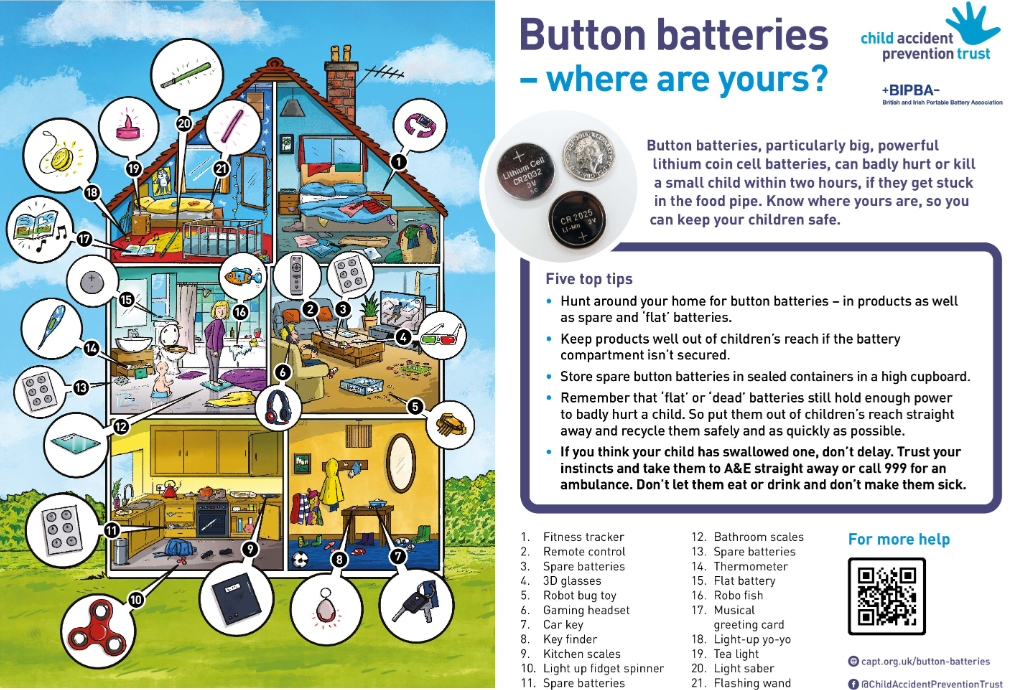BIPBA is a proud partner of the Child Accident Prevention Trust (CAPT). BIPBA has worked with CAPT to provide expert information and guidance to parents and professionals working with children and families, on battery safety.





BIPBA and CAPT have also worked with Office for Product Safety and Standards (OPSS) to raise awareness of the risks posed by button and coin cell batteries when swallowed by a child. OPSS has created a range of resources to raise awareness of the potential risks posed to children by swallowing button and coin cell batteries.

The runtime of primary batteries has increased significantly (between 25% – 50%) due to the use of more advanced materials such as special graphite, zinc powder with engineered particle shape and manganese dioxide with improved particle structure.
Batteries have also become smaller and lighter over the years driven by the miniaturisation of devices trend whilst also being required to deliver more energy to effectively operate devices. Continuous innovation from the portable battery industry leads equipment manufacturers to design smaller devices meaning less packaging, less cost and less waste at the end of life.
Many of the materials used within a battery can be reused (electrolysis stainless steel), and so recycling batteries is beneficial for the environment by minimising unnecessary waste.
However, currently too few portable batteries are being recycled and still often end up in landfill. We encourage all consumers to recycle their batteries in a safe and responsible way.
For further information about battery recycling in your local area, please click here”